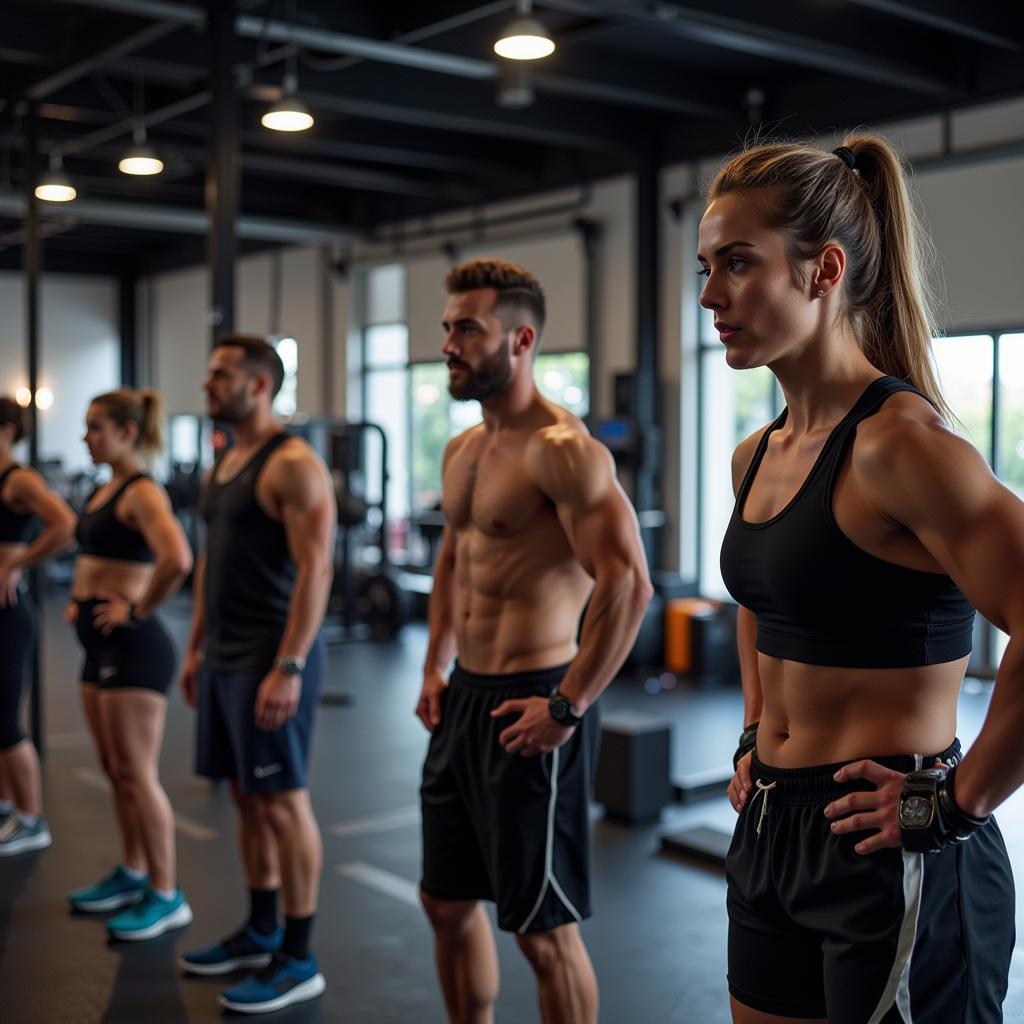Why Do Athletes Abstain From Sex Before a Big Game?
October 17, 2024The idea of athletes abstaining from sex before a big game is a topic that sparks curiosity and debate. Is there any truth to this age-old belief, or is it just another myth? Let’s delve into the science, psychology, and cultural factors surrounding this intriguing question.
The Science Behind Sex and Athletic Performance
 Athletes training in a gym
Athletes training in a gym
Scientifically, there is no conclusive evidence to prove that sex directly hinders athletic performance. Some studies suggest a slight decrease in testosterone levels immediately after sex, but the impact on physical strength and endurance is considered negligible. Testosterone, often linked to aggression and competitiveness, plays a role in muscle building and recovery. However, the fluctuations caused by sexual activity are unlikely to significantly affect an athlete’s performance, especially in the short term.
Psychological Factors: Focus and Mental Clarity
 Athlete practicing meditation for focus
Athlete practicing meditation for focus
From a psychological perspective, the impact of sex on performance varies greatly among individuals. Some athletes believe that abstinence helps them maintain focus and conserve energy, leading to a psychological edge. They might perceive sex as a distraction that could potentially deplete their mental and emotional reserves. This mindset, whether based on personal beliefs or cultural norms, can influence an athlete’s pre-game rituals and routines.
Cultural Beliefs and Superstitions
In many cultures, beliefs and superstitions surrounding sex and athletic performance are deeply ingrained. These beliefs often stem from traditional practices and anecdotal evidence passed down through generations. While not scientifically substantiated, they can hold significant weight in an athlete’s mind, influencing their decisions and actions leading up to a competition.
The Importance of Individualized Approaches
Ultimately, the decision of whether or not to abstain from sex before a game is a personal one. Athletes should prioritize what works best for their mental and physical well-being. Factors like personal beliefs, cultural background, and individual responses to sexual activity all come into play. Open communication with coaches, trainers, and sports psychologists can help athletes navigate these complexities and make informed decisions.
Conclusion
The relationship between sex and athletic performance is complex and multifaceted, influenced by a blend of scientific, psychological, and cultural factors. While there is no definitive answer, understanding these aspects can empower athletes to make choices that align with their individual needs and optimize their chances of success.